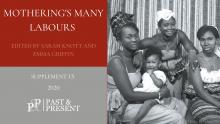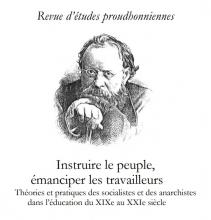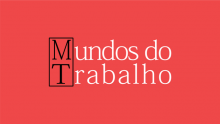Retrieving Women's Voices in African Political History
Second webinar of the Working group on the Power of Sources in African studies. Discussion theme: "Beyond silences: Retrieving women's voices in African political history", Tuesday 12 January 2021, 5-7pm CET. Online.
Presentation of “Mothering’s Many Labours”, Past & Present’s fifteenth annual supplement
On Friday 15th January (17:15-19:00 London time) the Womens’ History Seminar at the Institute of Historical Research, London will be hosting – virtually via Zoom – a roundtable and launch celebration event for “Mothering’s Many Labours” Past & Present’s fifteenth annual supplement. The supplement has been edited by Prof. Emma Griffin (University of East Anglia) and Prof. Sarah Knott (University of Indiana).
CfA: Prix d’étude des mondes contemporains – 2021
Lancé conjointement par l’Association des amis de La contemporaine – Bibliothèque, archives, musée des mondes contemporains et l’Association des amis de l’hôtel de Brienne, le « Prix d’étude des mondes contemporains » récompense de jeunes chercheurs et chercheuses en sciences humaines et sociales de toutes disciplines.
Il est constitué de deux prix et d’une bourse d’aide à la recherche :
Assistant/Associate Professor, Comparative Political Economy of Crisis/Crises of Capitalism, Department of Politics, York University
The Department of Politics, Faculty of Liberal Arts & Professional Studies, York University
The Department of Politics, Faculty of Liberal Arts & Professional Studies, York University invites highly qualified candidates to apply for a professorial stream tenure-track appointment in Comparative Politics at the Assistant or Associate Professor level, to commence July 1, 2021. Salary will be commensurate with qualifications and experience. All York University positions are subject to budgetary approval.
Revue d'études proudhoniennes: "Instruire le peuple, émanciper les travailleurs"
Nous avons le plaisir de vous annoncer pour la nouvelle année la
parution du dernier numéro de la Revue d'études proudhoniennes intitulé
"Instruire le peuple, émanciper les travailleurs". Vous la trouverez sur
notre site Internet à l'adresse suivante :
www.proudhon.net/category/numero-6-2020. Une publication papier aux
éditions Atelier de création libertaire est également envisagée.
CfA: Selezione di un ricercatore nell’ambito del progetto “Atlante delle violenze politiche del primo dopoguerra italiano, 1918-1922”
L’Istituto Nazionale “Ferruccio Parri” ha proposto alla Presidenza del Consiglio il progetto “Atlante delle violenze politiche del primo dopoguerra italiano, 1918-1922”.
Il progetto, che ha come partner la Giunta Centrale per gli Studi Storici e l’Associazione Italiana di Public History, prevede la realizzazione, entro la fine del 2022, di un portale dedicato alla violenza politica nel primo dopoguerra italiano.
CfP: Entre assistências e conflitos: políticas empresariais nas comunidades operárias da América Latina no século XX
Chamada de artigos para dossiê temático
Volume 13 (2021)
Além de artigos em fluxo contínuo (em português, espanhol ou inglês), resenhas e entrevistas, Mundos do Trabalho está com chamada aberta de artigos para o dossiê temático indicado abaixo.
Título do dossiê: Entre assistências e conflitos: políticas empresariais nas comunidades operárias da América Latina no século XX
Organização: Silvana Palermo (UNGS-CONICET), Andrea Andújar (CONICET-IIEGE/UBA)
Prix Maitron 2020
Le prix Maitron 2020 a été décerné à Gwendal DUGAST, Des ouvriers marins à l’ère industrielle : le personnel des machines dans la navigation maritime à vapeur à Nantes et Saint-Nazaire (1857-1932), Mémoire de M. 2, sous la direction de David PLOUVIEZ, Université de Nantes, 2020.
Le jury a également décidé d’attribuer quatre mentions spéciales :
Revue d'Histoire Contemporaine de l'Afrique
Le comité de rédaction de la Revue d'Histoire Contemporaine de l'Afrique (RHCA) a le plaisir de vous annoncer le lancement de RHCA, une nouvelle revue entièrement en open-access consacrée à l'histoire contemporaine du continent africain.



